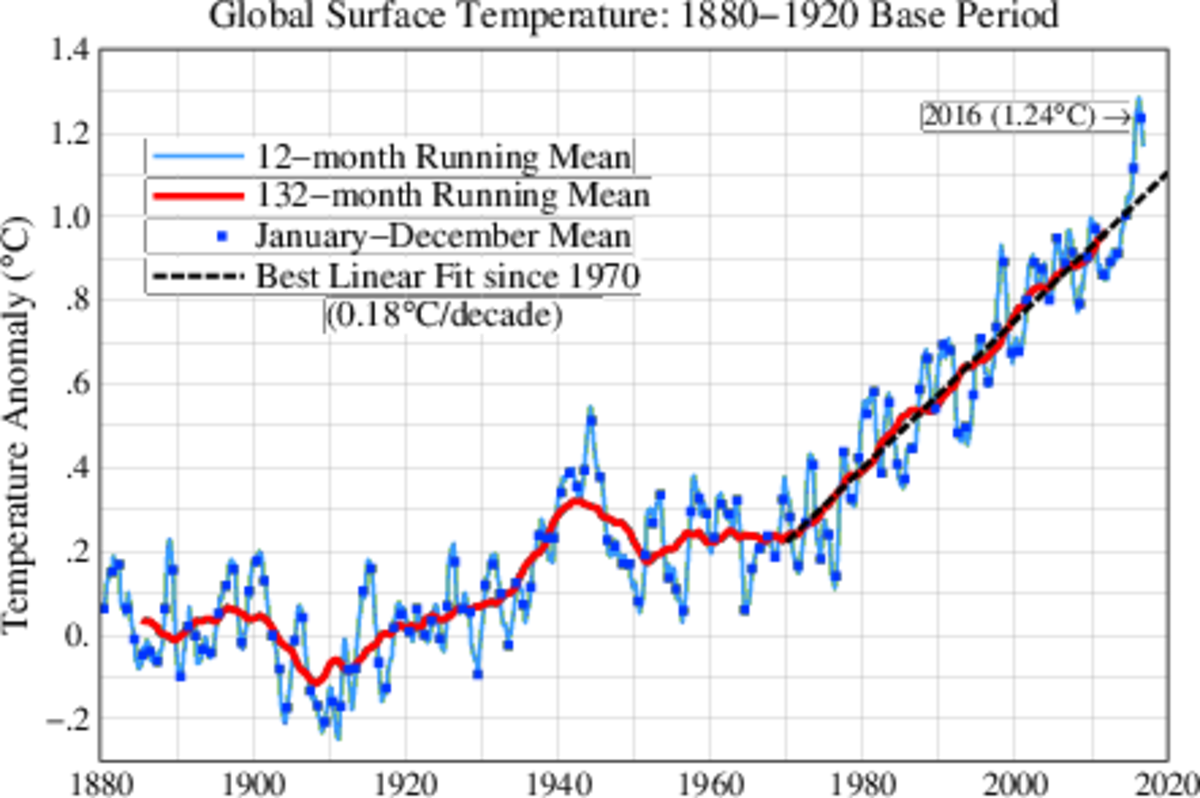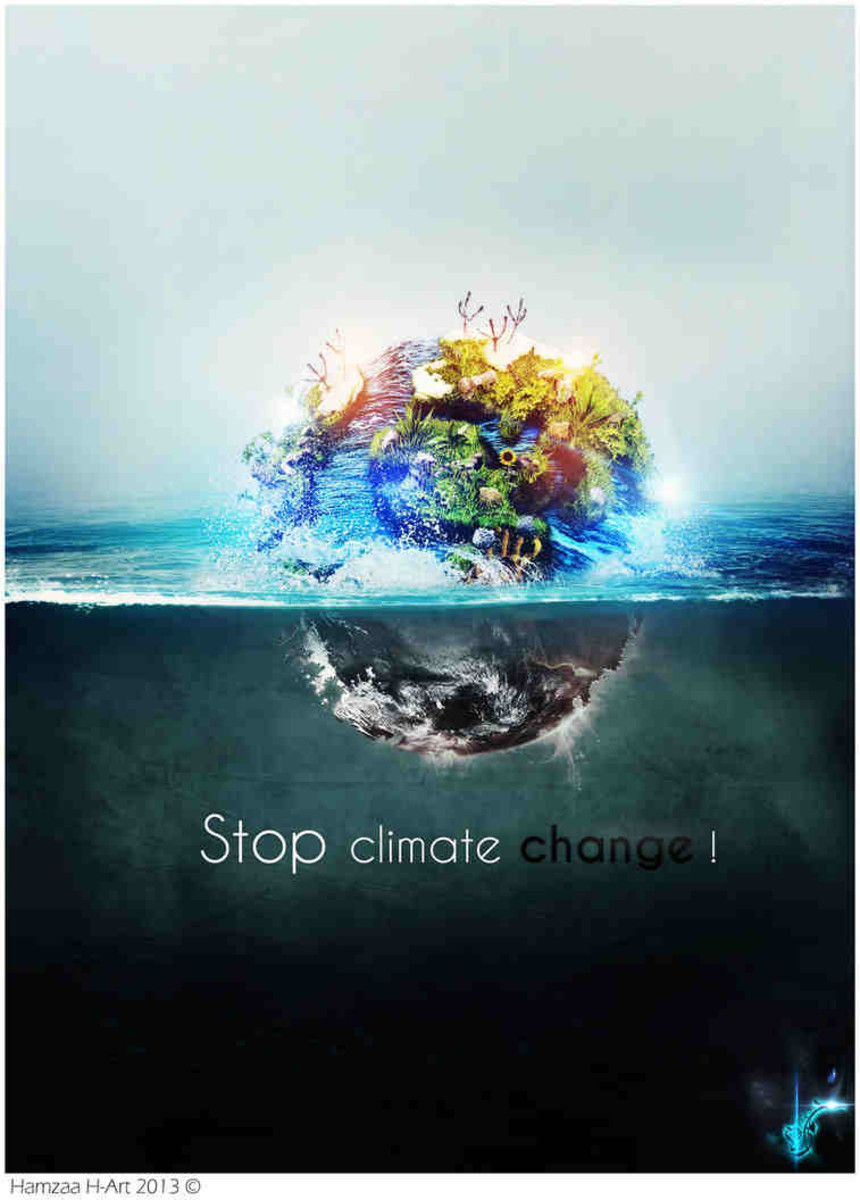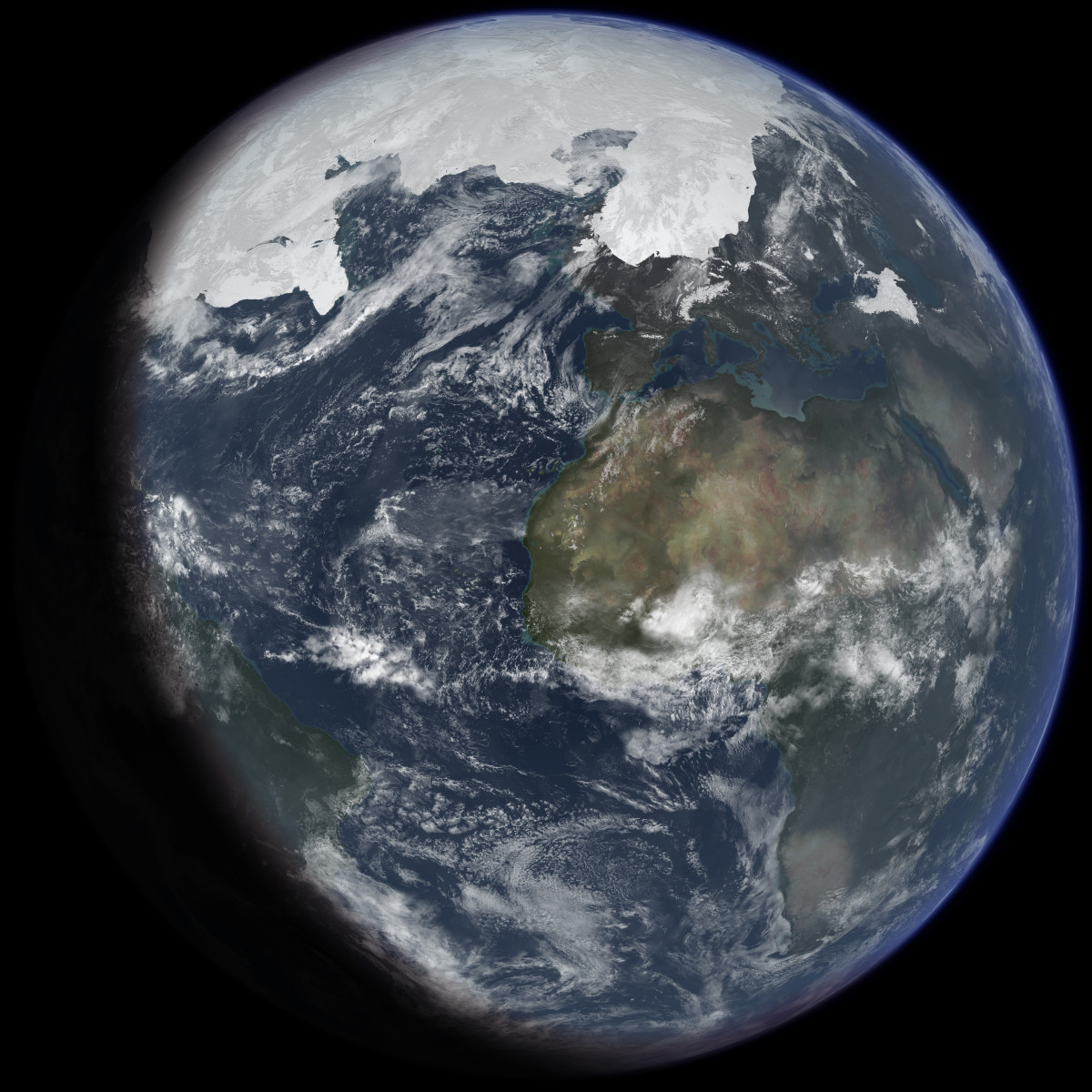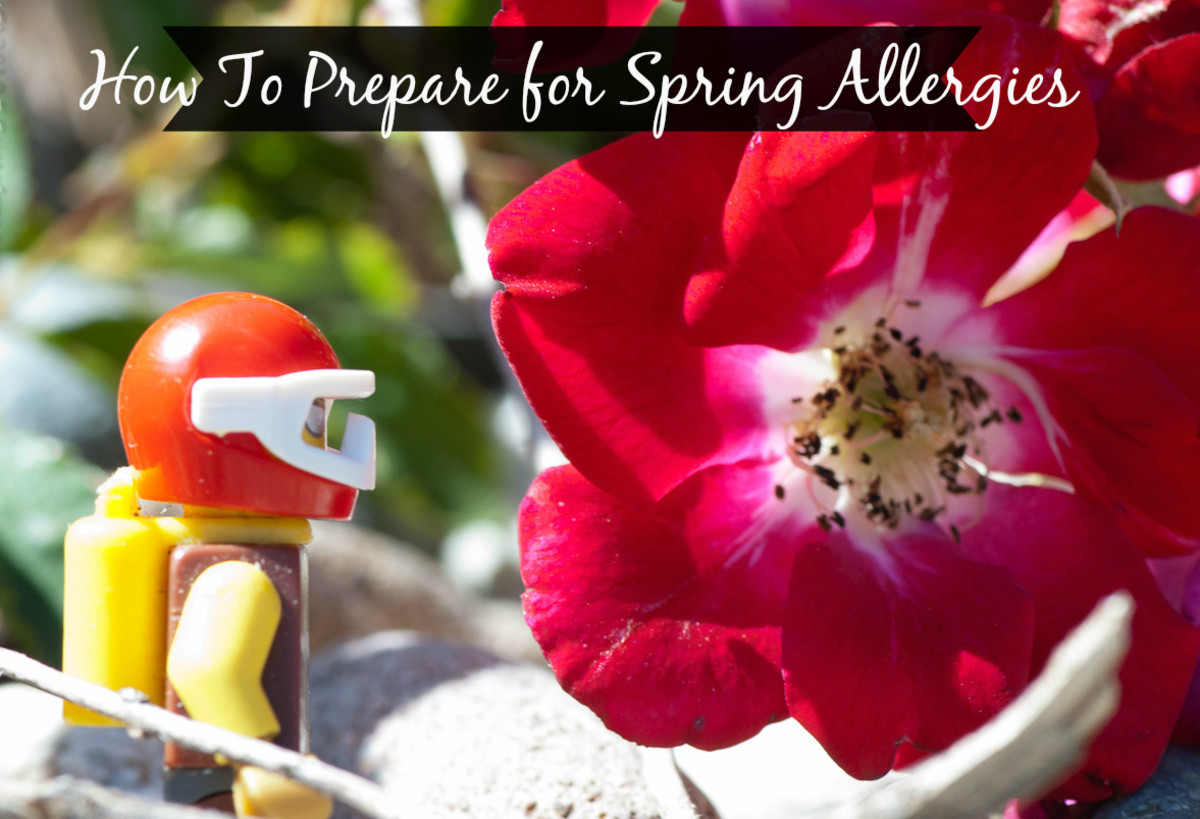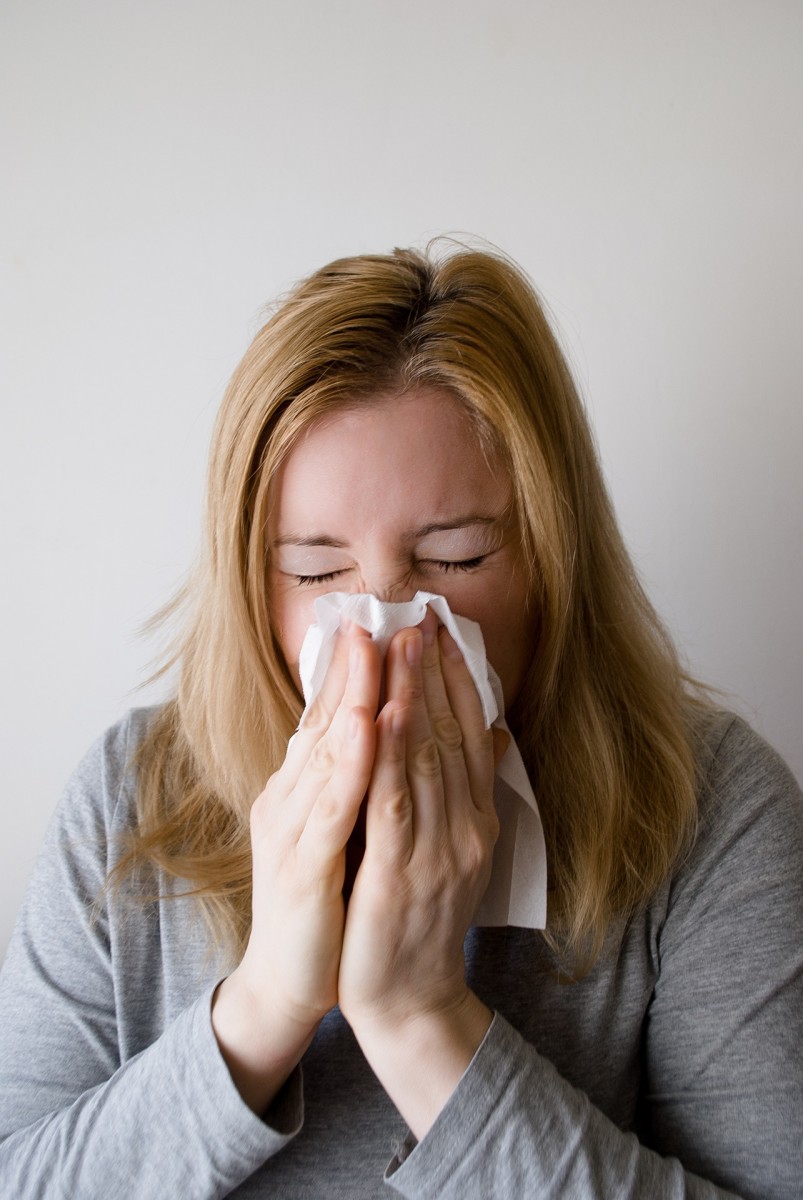Effect of Climate Change on Allergies
Climate Change

Supercell
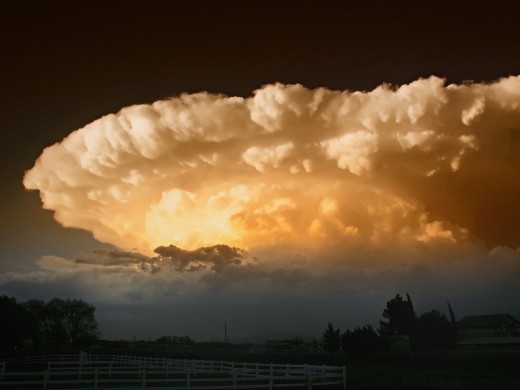
Climate Change Worsening Seasonal Allergies
Climate change is considered to be the culprit responsible for many of Earth’s recent changes, including melting polar ice caps, rising sea levels and increased amounts of carbon dioxide (CO2) in our air.
Climate change, also called global warming, has been studied in recent years to try to find the reasons behind our world's changing climate; looking for the cause and effect of our planet's cycles and how human actions may be playing a role in our planet's altering weather patterns.
Some studies have focused on the effect climate change may have on human health in the years to come. One of the major concerns about climate change is the rising levels of carbon dioxide in our atmosphere.
What is climate change?
Climate is defined as a statistical average for weather in a certain place over many years. We all know what weather is; weather includes such elements as precipitation (rain and snow), wind, temperature,and humidity.
Each of us experiences weather every day; from rain to snow, wind to calm, clouds to sunshine, these are the elements of weather.
So, what is climate change? Climate change refers to measurable patterns of change seen in temperatures, weather, precipitation, wind and seasons around the world, usually referring to long-term alterations in weather across seasons and years.
Climate Change
Bee with Pollen Grains
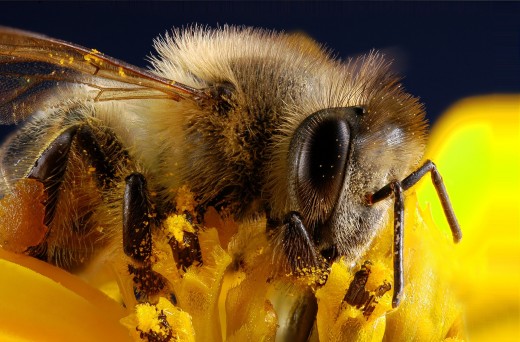
Why is climate change possibly dangerous?
It's a known fact that weather has the capability to cause far-ranging transformations to our planet. We see the action of hurricanes, floods, and temperature changes as evidence of the impact weather can have on our lives.
Climate shapes the ecosystems on Earth; bringing changes not only to our natural environment, but also to human civilization. Changes in weather patterns have the potential to alter our human existence with the revamping of our environment in ways we cannot begin to grasp.
Incremental changes in precipitation, for instance, can have a drastic effect on an ecosystem. The rise or fall of moisture can be responsible for the death of plants and trees that animals and humans need for survival. Changes in climate can also be responsible for an increase in many health problems, including pollen allergies.
Allergies--One Health Issue Worsened by Climate Change
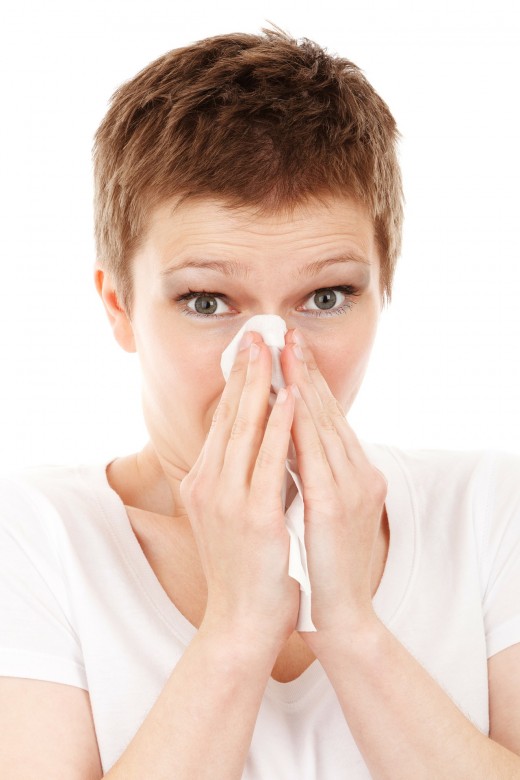
How does climate change effect health?
Climate change can bring small, but drastic changes to an ecosystem. For instance, rising levels of CO2 (carbon dioxide) in our atmosphere have been shown to cause certain changes to our environment, including the Greenhouse Effect and to have a direct impact on allergies.
Many people are surprised at the link between rising carbon dioxide levels and allergies, but several studies have shown a viable link between increased CO2 and an increase in new cases of allergic rhinitis and seasonal allergies. The Greenhouse Effect causes a rise in temperatures and shifts in precipitation patterns, bringing drastic changes to the lives of plants, animals and humans.
Scientists have found a strong correlation between increasing temperatures and carbon dioxide levels and plant pollination. Many plants thrive under these conditions, which in turn leads to a greater load of pollen in the air.
The higher levels of pollen cause an increase in the number of new patients diagnosed with seasonal allergies, while also making the lives of those (who already have allergies) even more miserable.
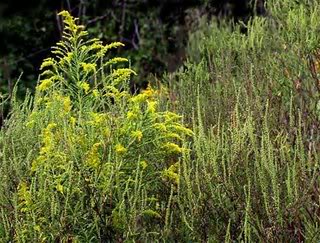
Ragweed: One of the Worst Allergen Offenders
One example of how the Greenhouse Effect and increased CO2 levels affects plants and pollen can be seen in ragweed. Ragweed, or Ambrosia, grows in many places in Europe, and North and South America. Ragweed is a member of the sunflower family, and it produces around a billion grains of pollen over the course of its growing season. Ragweed's pollen grains are very light and are able to travel over 400 miles when carried on the wind.
These characteristics make ragweed one of the greatest causes of hay fever in the U.S. Ragweed is a cause for great concern in the climate change debate. Several global studies have shown that ragweed loves to have more CO2 and warmth in the air (both conditions can be caused by the Greenhouse Effect). Ragweed, under these climate modifications, produces more pollen causing a heavier allergen burden for humans, i.e. hay fever.
Climate change predictions for the coming decades show the possibility of increasing temperatures and CO2 levels in the atmosphere, which has the potential to cause worsening allergies for people all over the world. This is just one example of how climate change may affect the health of billions of people in every part of the world.
Climate Changes Linked to Allergies
Steps to cut down allergens in our environment
Here are a few ideas that might help you to fight the increased levels of pollen stemming from climate change:
- Pay attention to the pollen counts for your area, especially to the levels of the particular pollens you're allergic to.
- Stay indoors, keeping windows and doors shut to keep out as much pollen as possible.
- Use an air conditioner and/or air purifier in your home, office and car to help filter out allergens and keep the air you breathe clean.
- Watch the weather as hot, windy days as the air’s full of pollen. Rainy days, on the other hand, can provide some relief from your pollen allergies. Also, be sure to not be outside between 11:00AM and 4:00PM when pollen levels are at their highest.
- Be sure to keep your house dust- and pollen-free by frequent cleaning to keep pollen and dust levels down. It’s also helpful to only use a hepa vacuum that filters out the air as it cleans up surfaces.
- Change your clothes and shower after being outside in the pollen. This will help to keep your house cleaner and pollen-free, while also reducing your allergy symptoms.
- Consider the use of a specially filtered allergy mask when you do have to go outdoors. These masks usually have replaceable charcoal filters to help filter out many allergens, helping you to feel better and breathe easier.
Our Home
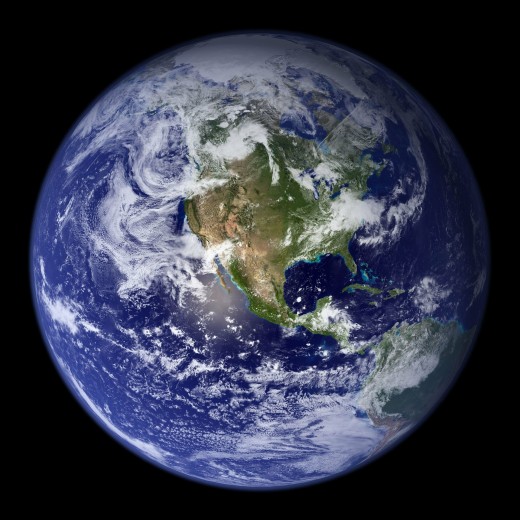
Climate Change Real or Not
Climate change is a much debated topic around the world. Many scientists and laypeople believe climate change to be very real, while others remain skeptical about its existence and effects.
Whether the climate change we see is only a temporary effect or is more serious and long-term, we are all living on this planet together, and are responsible for our own effects on the environment and the world we live in.
There are steps we can take to keep ourselves healthy in this time of shifting climate, but we must also learn to modify our behaviors to keep human impact on climate changes to a minimum and keep our environment clean.
We have one place to call home—our beautiful planet Earth, and we are the caretakers responsible to one another and all forms of Life on our world. If each of us does our part, we can make this world a better place.
Go out and make your part of the world a better place to live and breathe.
Climate Change Debate
Do you believe climate change is real?
© 2010 Sherry Vacik

